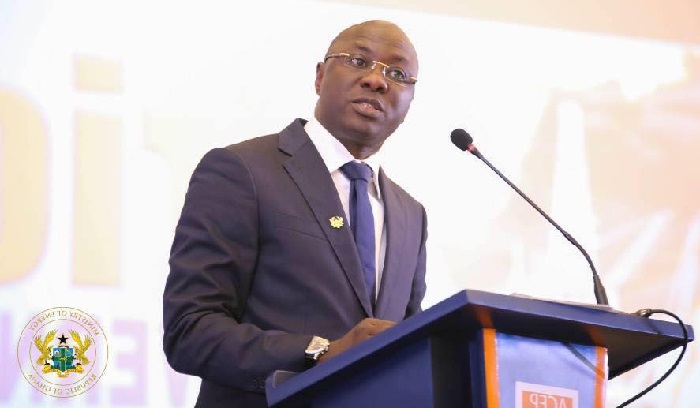Ghana has achieved over 88% electricity coverage – Finance Minister
“Let’s avoid this and also let us be intentional and plan for the long term on how we procure capacity and how we build the infrastructure for the transmission to ensure that every part of the country gets access to electricity,”
- Advertisement -
Ghana has attained over 88% electricity coverage nationwide.
Finance Minister Dr Mohammed Amin Adam disclosed this during a panel discussion at the Spring Meetings of the World Bank and IMF in Washington DC. He further stated that Ghana has achieved a coverage rate of 88.85 per cent and is steadfast in its commitment to reaching the 100 per cent target.
- Advertisement -
Dr Adam emphasized the government’s determination to achieve a 90 per cent threshold by the end of the year.
- Advertisement -
“You have to be deliberate about energy access and so right from the early 1990s, we were very intentional, the government decided that Ghana must achieve universal access to electricity and so we put in the relevant policies, the national electrification scheme, rural electrification programme and the self-help electrification programme through which communities and the government share the cost of electricity access and so to them, it has paid off, we have achieved over 88.85% access.”
- Advertisement -
“What you should not do is that in the past we procured energy through unsolicited projects, now we see that the costs are coming down and therefore we can acquire more capacity at lower cost through competitive procurement and therefore for renewables for example, we have moved to the competitive procedure so we can lower cost.”
“So we should avoid the practice of procuring energy through unsolicited projects because that turns out to be very expensive. It is also important that when you are in crisis you do not acquire as many generation capacities as you will not need because the tendency for investors to come knocking on your door, justifying why you should acquire more because you have a crisis is very high and at the end of it you acquire capacity at very high-cost which you will have to contend with for the rest of the life span of those contracts.”
“Let’s avoid this and also let us be intentional and plan for the long term on how we procure capacity and how we build the infrastructure for the transmission to ensure that every part of the country gets access to electricity,” he said.
- Advertisement -



